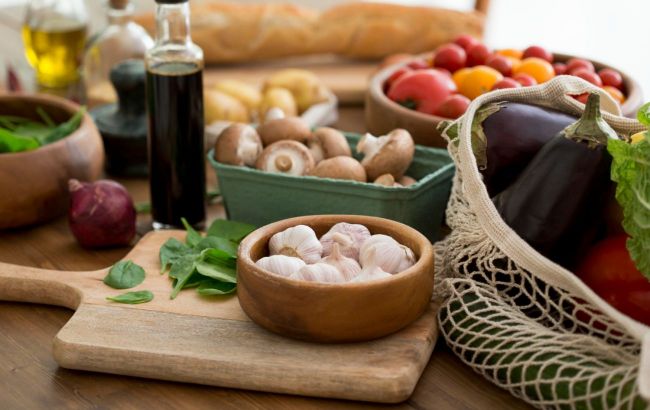What foods should you eat in spring to get more vitamin E
 What foods contain vitamin E (photo: Freepik)
What foods contain vitamin E (photo: Freepik)
Vitamin E is essential for overall health, good skin and hair condition. In spring, you should add foods containing this vitamin to your diet, states WebMD.
Why do you need vitamin E
Vitamin E is a fat-soluble vitamin. Its main role is to act as an antioxidant. Some antioxidants protect cells from free radicals (unpaired electrons).
This vitamin plays an important role in several body functions.
Vitamin E deficiency is rare and usually due to problems with fat absorption caused by gastrointestinal problems. Over time, the deficiency can lead to symptoms such as loss of balance, muscle weakness, or damage to the retina.
Studies also show that low levels of vitamin E at birth can negatively affect the development of a child's nervous system. Doctors advise pregnant women to consume the recommended 15 milligrams per day, and women who are breastfeeding to consume up to 19 milligrams.
Women need an average of 7 mg per day, and men need about 10 mg per day. These values vary depending on your lifestyle.
Getting enough vitamin E in your diet can be very beneficial.
Strengthen the immune system
As we age, the ability of the immune system to fight infections and diseases can decline. The antioxidants in vitamin E, especially alpha-tocopherol, boost the body's immune response. These antioxidants also fight age-related cellular damage that is associated with many chronic diseases, including cancer.
Eye health
The antioxidant activity of vitamin E may also support long-term eye health.
Cognitive health
Vitamin E may prevent memory loss or slow the progression of diseases such as Alzheimer's.
Vitamin E antioxidants, along with nutrients such as vitamins A and C, can help maintain brain health in the long term.
Heart health
Vitamin E can help maintain healthy heart function. Getting enough vitamin E as part of a healthy diet reduces the risk of heart attacks or death from heart disease.
Products with vitamin E
Wheat germ oil
20 milligrams per tablespoon contains 135% of your daily value. Wheat germ oil is the richest natural source of vitamin E.
It can be used as a substitute for most other cooking oils. Cooking on high heat can reduce the vitamin content.
Other oils, such as hazelnut, almond, and safflower oils, are also good sources of vitamin E but contain about a quarter of the amount found in wheat germ oil.
Almonds
23 grams of almonds contain 7.3 milligrams of vitamin E. Studies have also linked almonds to a number of health benefits, including reduced risk of obesity and heart disease.
Sunflower seeds
Most seeds are a great source of vitamin E, but sunflower seeds are particularly beneficial. A 28 gram serving contains 7.4 milligrams of vitamin E, which is half the daily requirement.
Sunflower oil contains only about one-third the vitamin E content of the whole seeds, but it is still a great source of the vitamin.
Cedar nuts
Although almonds are the nut with the highest vitamin E content, pine nuts also add a significant amount to the diet, about 3 milligrams per two tablespoons
Avocado
Avocados are a rich source of many nutrients, such as potassium, omega-3, and vitamins C and K.
Half an avocado also contains up to 20% of your vitamin E needs.
Peanut butter
Peanuts and peanut butter are also high in vitamin E: you can get about 18% of your daily value from two tablespoons. To get the best health benefits, make sure you choose a natural product without added preservatives or sugar.
Fish
Fish is a great source of omega-3 fatty acids, an essential nutrient for both physical and cognitive health.
Studies show that, in addition to its own individual health benefits, vitamin E can also help protect and enhance the effects of omega-3 in the body.
Earlier, we reported on four foods that contain the same amount of omega-3 as salmon.
Read also about 9 vitamins that extend life.
This material is for informational purposes only and should not be used for medical diagnosis or self-treatment. Our goal is to provide readers with accurate information about symptoms, causes, and methods of detecting diseases. RBС-Ukraine is not responsible for any diagnoses that readers may make based on materials from the resource. We do not recommend self-treatment and advise consulting a doctor in case of any health concerns.

